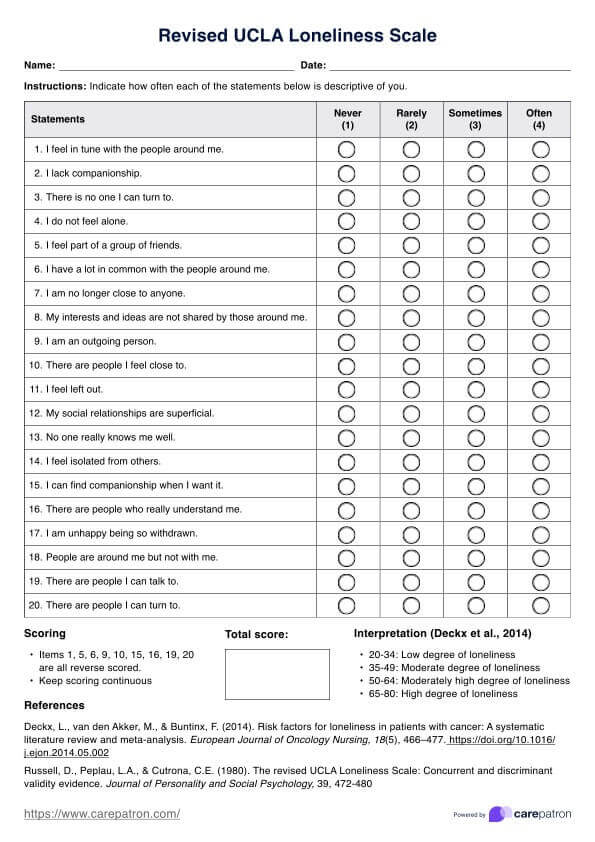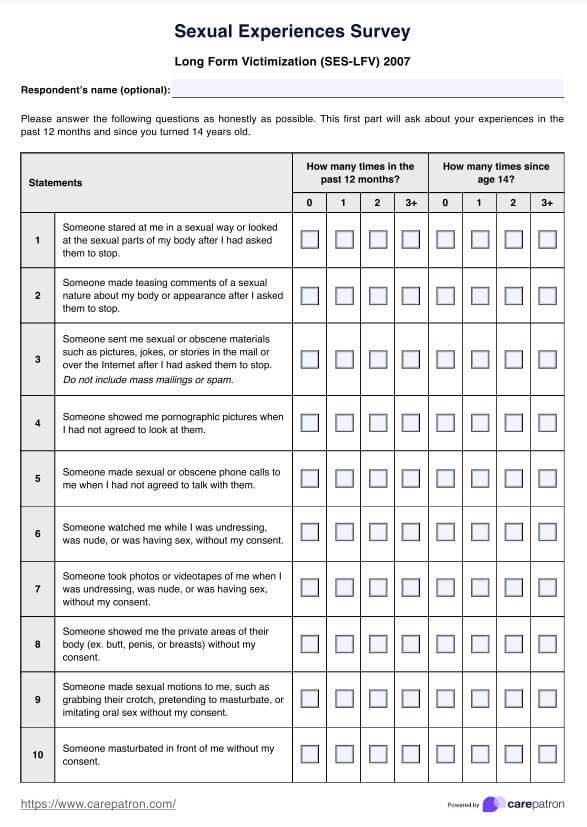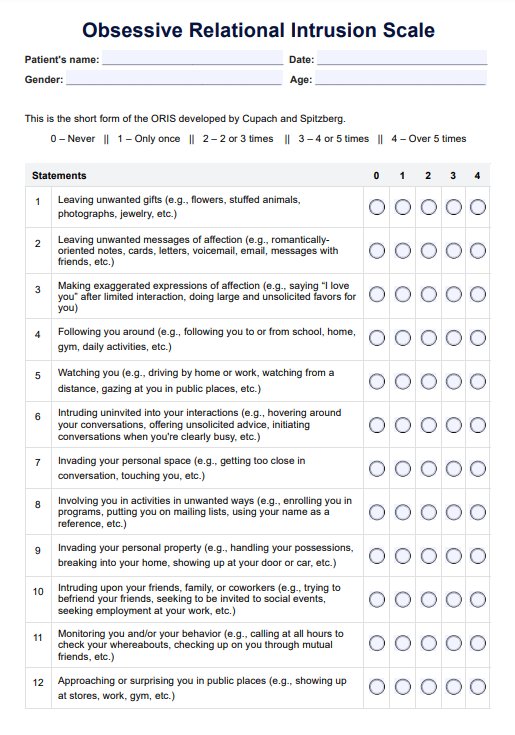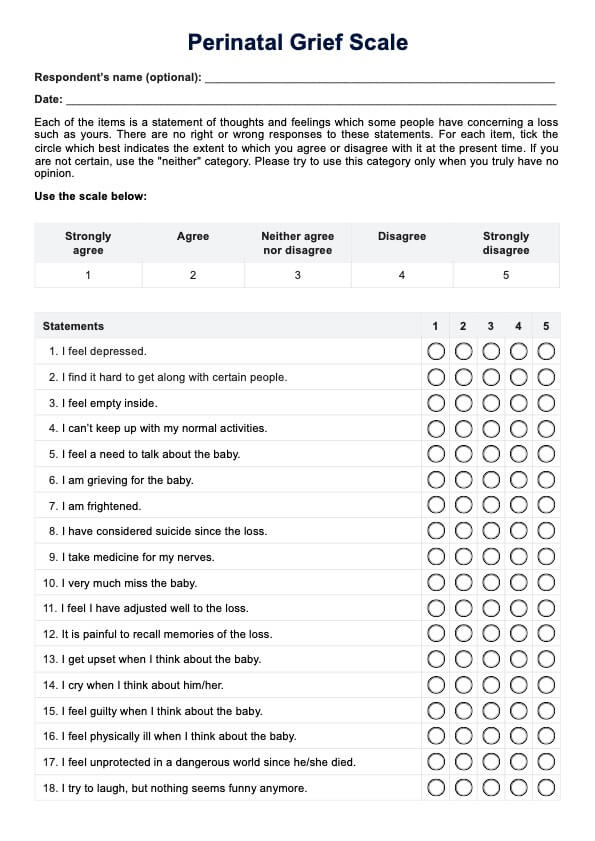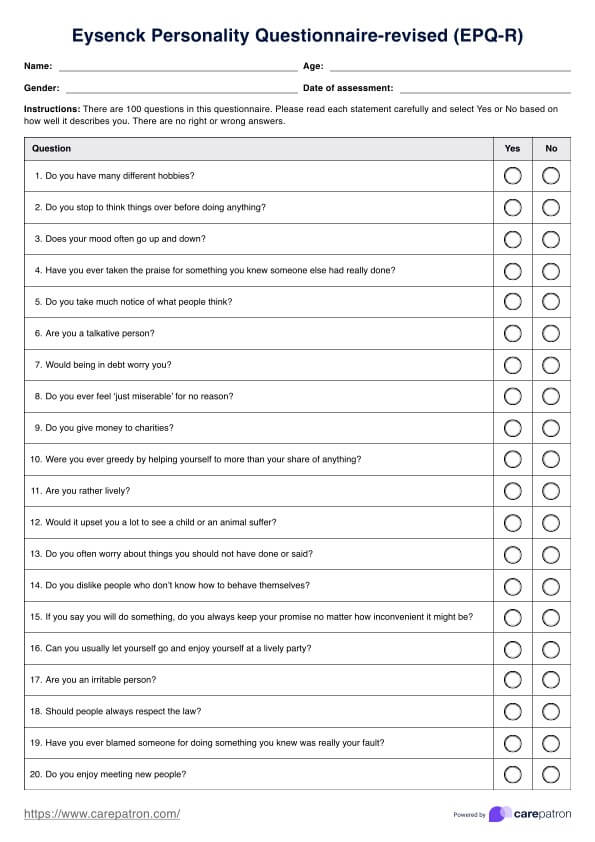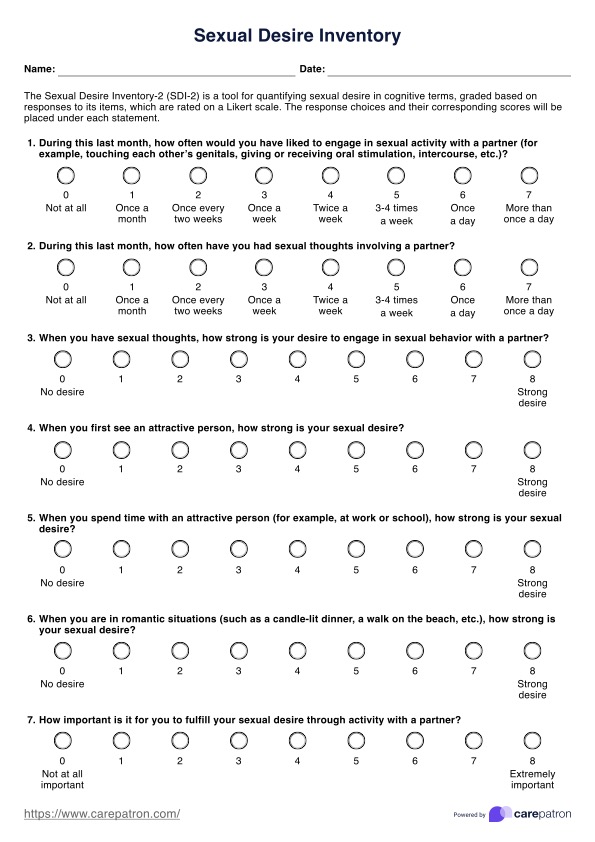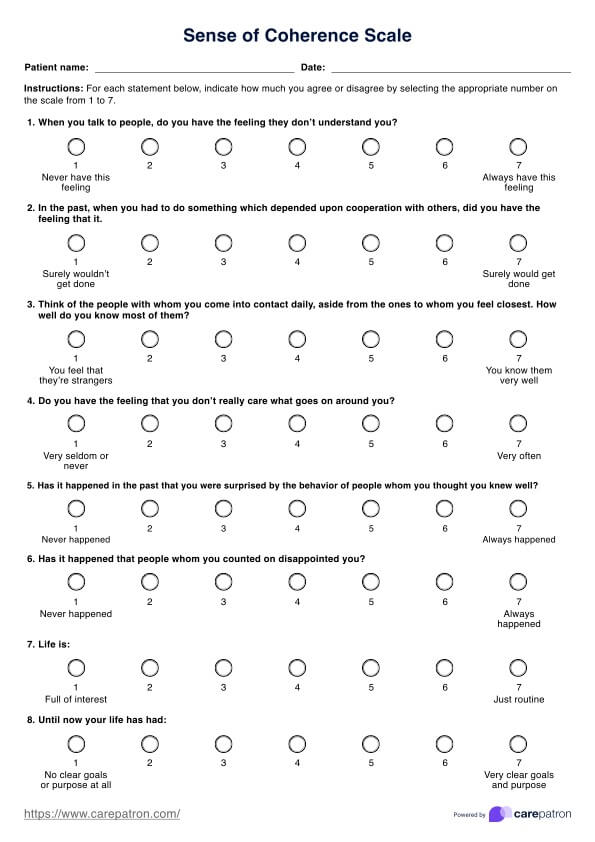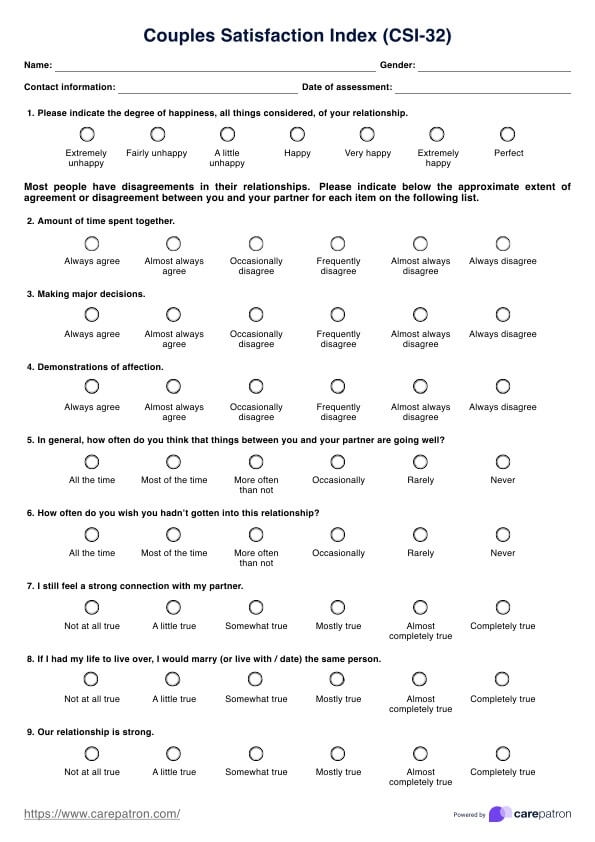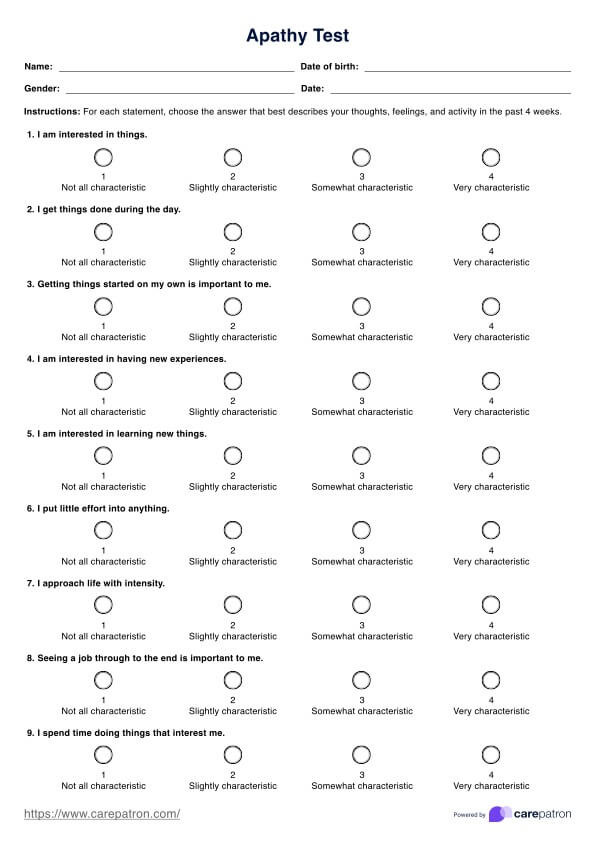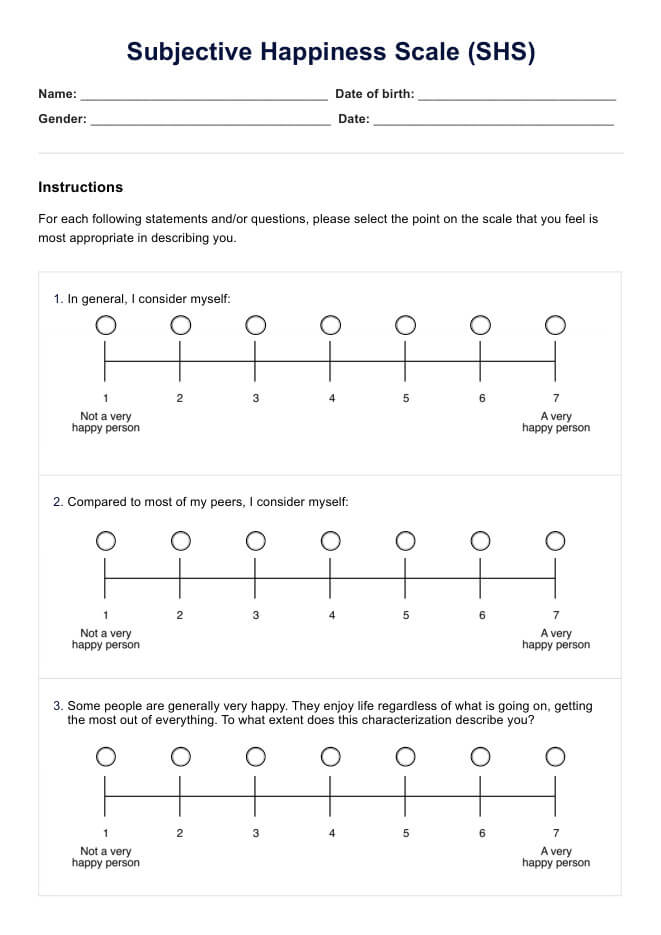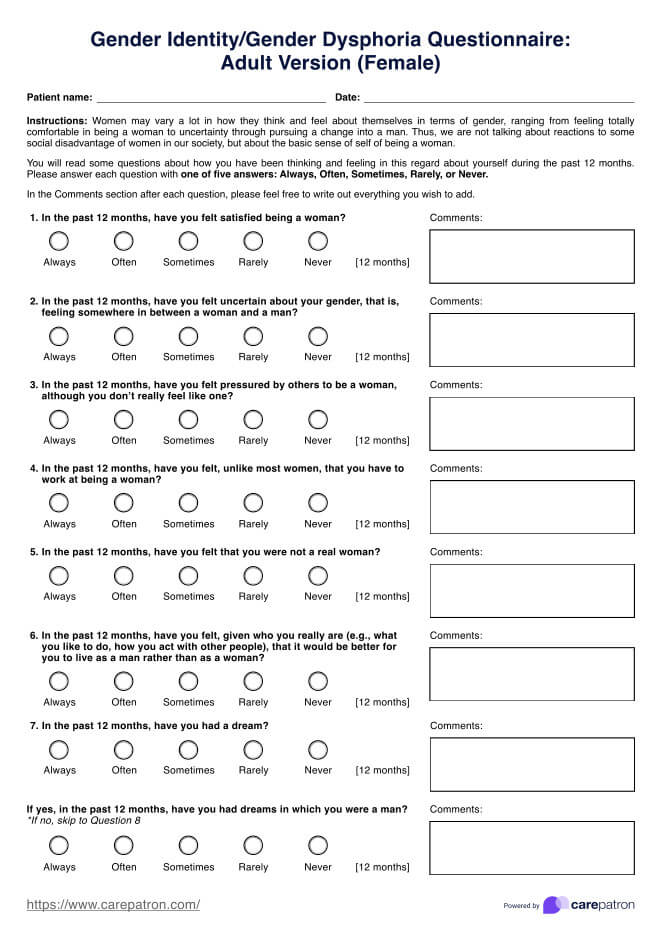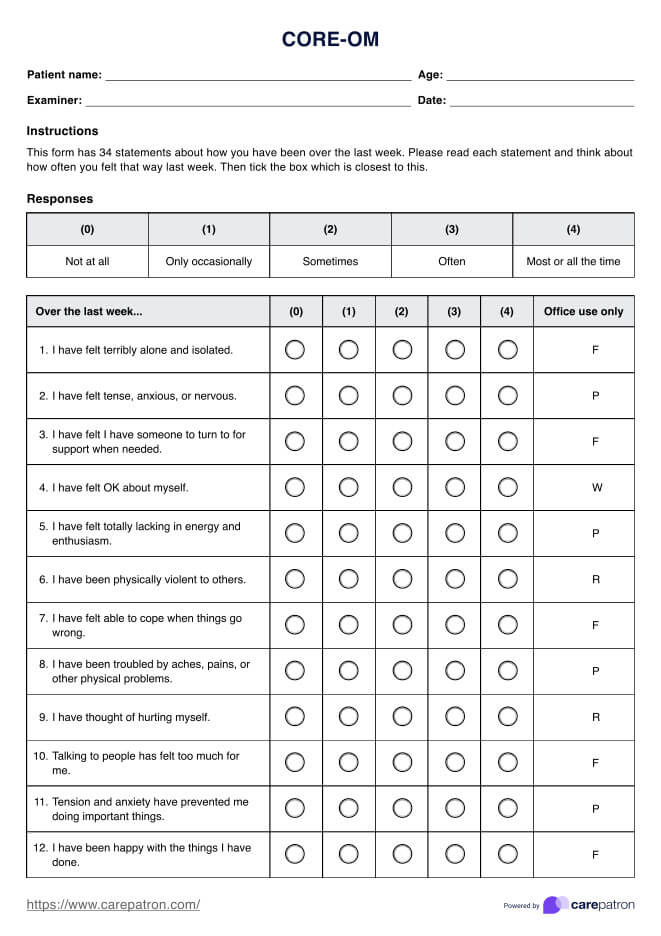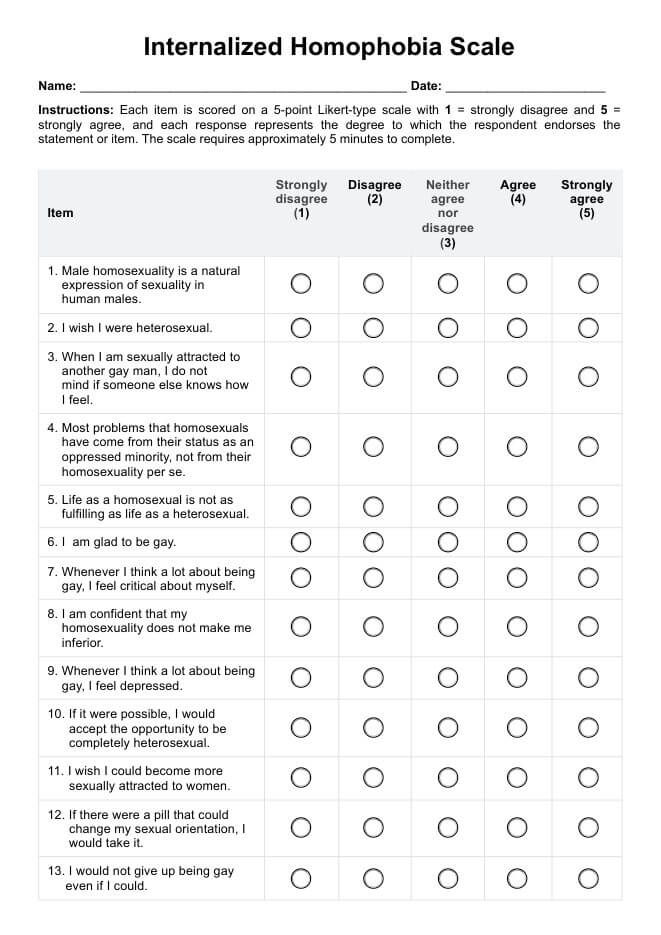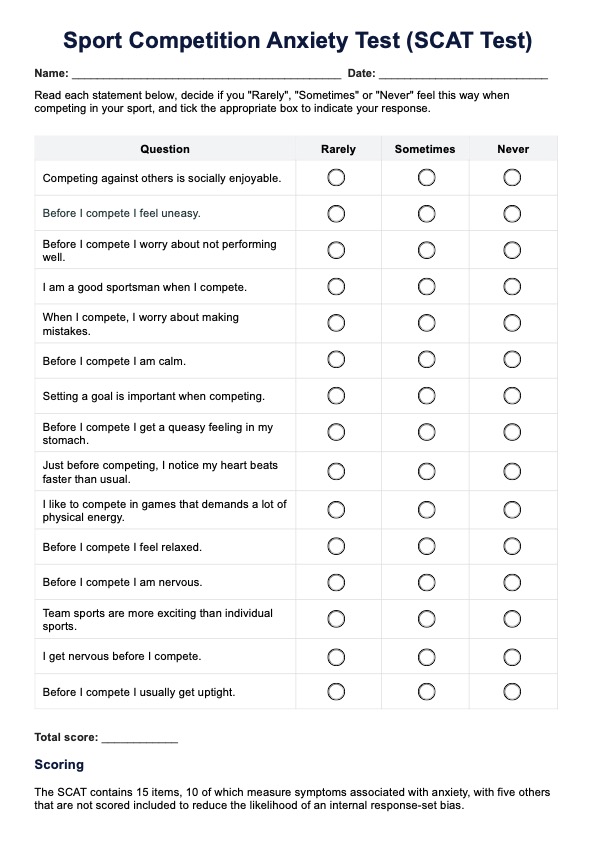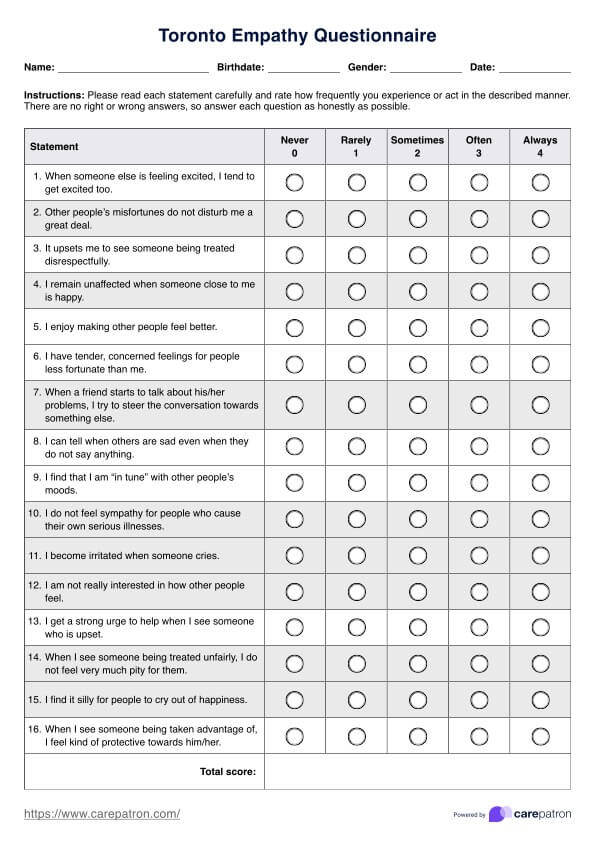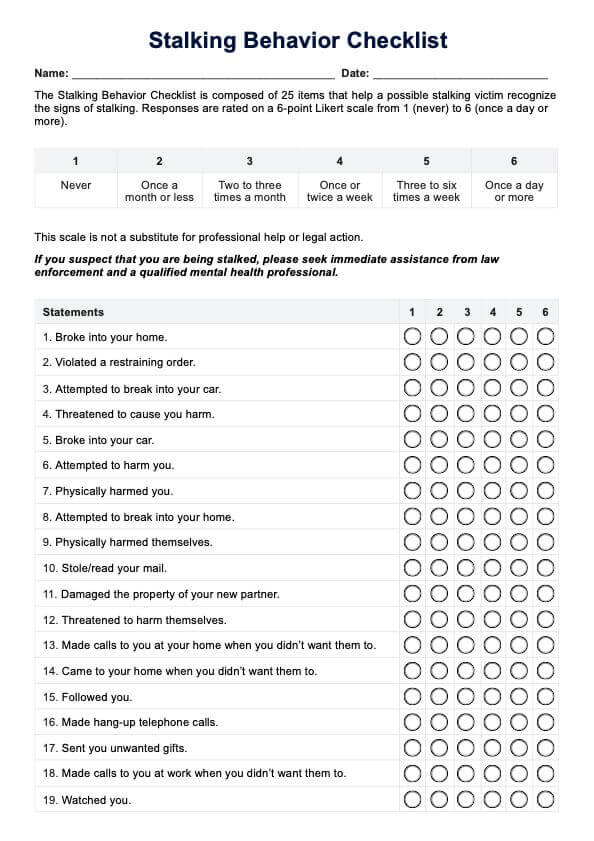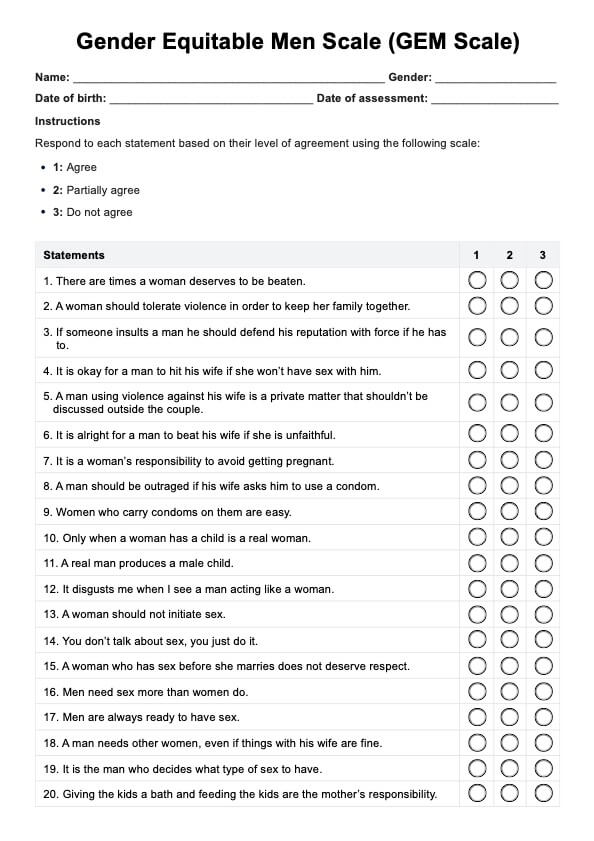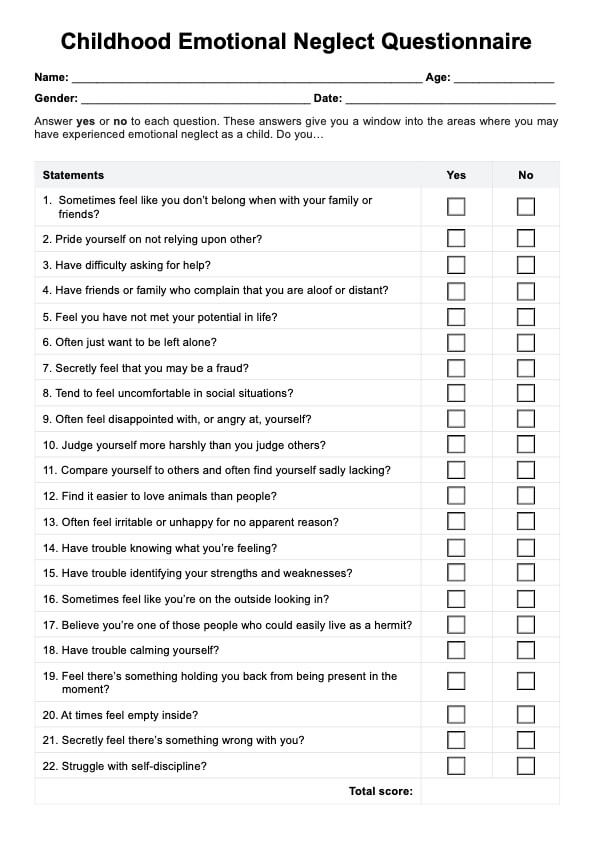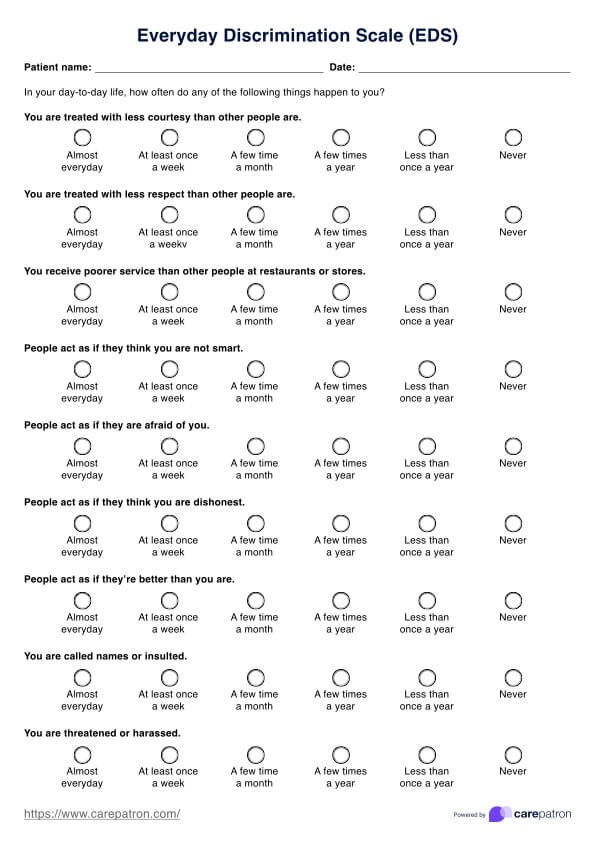Dissociative Amnesia DSM-5 Criteria
Learn about dissociative amnesia and how it's diagnosed using the DSM-5. Download a free PDF handout for your practice here.


What is dissociative amnesia?
Dissociative amnesia is marked by the inability to recall autobiographical information, which goes beyond ordinary forgetfulness. This condition can manifest in various forms: localized amnesia (inability to remember a specific event or period), selective amnesia (inability to recall a particular aspect of an event), or generalized amnesia (loss of identity and life history).
According to Speigel (2022), this condition may also present as continuous amnesia, where patients forget each new event as it happens, or as systematized amnesia, where patients forget information within a specific category.
Another type of dissociative amnesia is dissociative fugue. The Diagnostic and Statistical Manual of Mental Disorders, 5th Edition (DSM-5) describes this as sudden, unexpected travel or wandering away from one's usual environment, along with an inability to remember one's past (American Psychiatric Association, 2013).
While some individuals with amnesia quickly recognize gaps or a sense of fragmentation in their long-term memory, most people with dissociative disorders are initially unaware of their memory loss. They may minimize or rationalize these deficits.
Awareness often emerges when they realize they cannot recall their personal identity or when situations highlight missing autobiographical information. This might occur, for instance, when they encounter evidence or are informed of past events they cannot remember. Generalized dissociative amnesia, involving the loss of a significant portion or all of one's life history and identity, is rare (American Psychiatric Association, 2013).
Dissociative Amnesia DSM-5 Criteria Template
Dissociative Amnesia DSM-5 Criteria Example
Dissociative Amnesia DSM-5 Criteria
According to the DSM-5, the criteria for diagnosing dissociative amnesia are as follows:
A. An inability to recall important autobiographical information, usually of a traumatic or stressful nature, that is inconsistent with ordinary forgetting. Note: Dissociative amnesia most often consists of localized or selective amnesia for a specific event or events or generalized amnesia for identity and life history.
B. The symptoms cause clinically significant distress or impairment in social, occupational, or other important areas of functioning.
C. The disturbance is not attributable to the physiological effects of a substance (e.g., alcohol or other drug of abuse, a medication) or a neurological or other medical condition (e.g., partial complex seizures, transient global amnesia, sequelae of a closed head injury/traumatic brain injury, other neurological condition).
D. The disturbance is not better explained by dissociative identity disorder, posttraumatic stress disorder, acute stress disorder, somatic symptom disorder, or major or mild neurocognitive disorder
The DSM-5 also included a coding note for dissociative amnesia without dissociative fugue:
- The code for dissociative amnesia without dissociative fugue is F44.0. The code for dissociative amnesia with dissociative fugue is F44.1. Specify if: F44.1 With dissociative fugue: Apparently purposeful travel or bewildered wandering that is associated with amnesia for identity or other important autobiographical information.
Difference between DSM-IV and DSM-5
Here are the key differences between dissociative amnesia as classified in the Diagnostic and Statistical Manual of Mental Disorders, 4th Edition (DSM-IV) and DSM-5 (American Psychiatric Association, 2000; American Psychiatric Association, 2013):
- The DSM-5 criteria specify that amnesia involves "an inability to recall important autobiographical information, usually of a traumatic or stressful nature, that is inconsistent with ordinary forgetting." The DSM-IV criteria were more general, requiring "one or more episodes of inability to recall important personal information, usually of a traumatic or stressful nature, that is too extensive to be explained by ordinary forgetfulness."
- The DSM-5 notes that dissociative amnesia "most often consists of localized or selective amnesia for a specific event or events; or generalized amnesia for identity and life history." The DSM-IV-TR did not specify these subtypes in the diagnostic criteria.
- The DSM-5 added a specifier for "With dissociative fugue," which involves "apparently purposeful travel or bewildered wandering that is associated with amnesia for identity or other important autobiographical information." This was not a specifier in the DSM-IV criteria.
- The DSM-5 explicitly states that the disturbance "is not better explained by dissociative identity disorder, posttraumatic stress disorder, acute stress disorder, somatic symptom disorder, or major or mild neurocognitive disorder." The DSM-IV criteria only stated it should not occur exclusively during other disorders like dissociative identity disorder (DID) or post-traumatic stress disorder (PTSD).
How is dissociative amnesia treated and managed?
Dissociative amnesia can be a challenging disorder to diagnose and treat, as the symptoms can potentially overlap with other illnesses, such as PTSD or DID. However, with proper care and treatment, many people with dissociative amnesia can experience significant improvement in their symptoms.
One of the first steps in treating dissociative amnesia is to address any underlying trauma that may have caused the memory loss. This can involve therapy sessions that focus on helping individuals process and cope with their traumatic experiences.
Additionally, cognitive-behavioral therapy (CBT) may also be used to help individuals identify and challenge negative thoughts and behaviors that may be contributing to their dissociative amnesia. This type of therapy can also help individuals develop coping mechanisms and relaxation techniques to manage their symptoms.
In some cases, medication such as antidepressants or anti-anxiety medications may be prescribed to help alleviate any co-occurring mental health issues that may be contributing to dissociative amnesia.
References
American Psychiatric Association. (2000). Diagnostic and statistical manual of mental disorders (4th ed., text rev.).
American Psychiatric Association. (2013). Diagnostic and statistical manual of mental disorders (5th ed.). https://doi.org/10.1176/appi.books.9780890425596
Spiegel, D. (2022, September). Dissociative amnesia - psychiatric disorders. MSD Manual Professional Edition. https://www.msdmanuals.com/professional/psychiatric-disorders/dissociative-disorders/dissociative-amnesia
Commonly asked questions
A mental health professional diagnoses this dissociative disorder through a detailed assessment, which may include clinical interviews, patient history, and standardized diagnostic criteria such as those found in the Diagnostic and Statistical Manual of Mental Disorders, 5th Edition (DSM-5). The assessment evaluates the extent of memory loss and rules out other potential causes, such as neurological conditions or substance abuse.
Dissociative amnesia is often triggered by a traumatic event such as sexual abuse, natural disasters, combat, or otherwise highly distressing incidents. Memory loss is typically linked to these overwhelming events, which the mind attempts to block out as a way to cope.
There is no guaranteed way to prevent dissociative amnesia, but seeking therapy after experiencing traumatic events may help reduce the risk of developing the disorder.


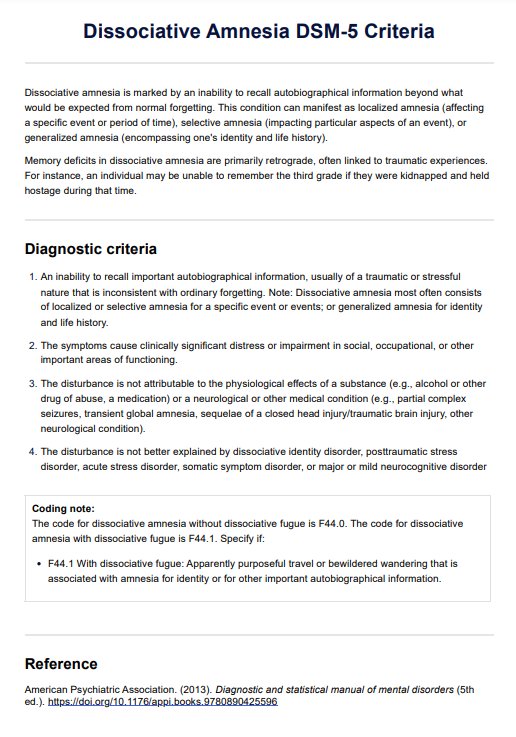
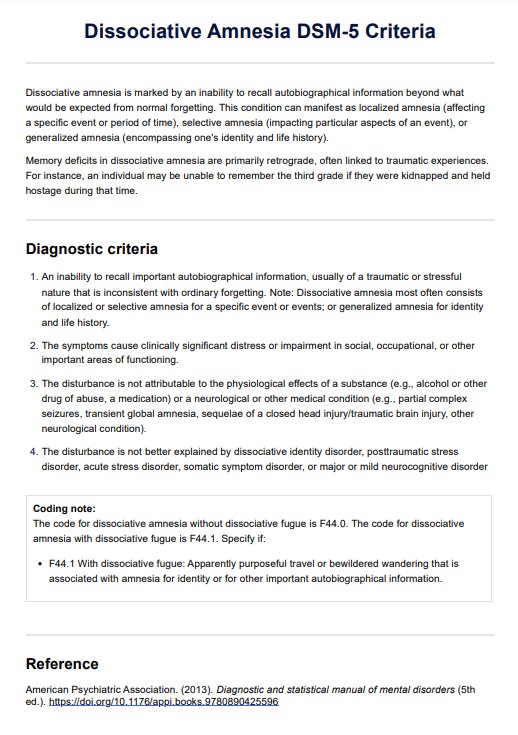


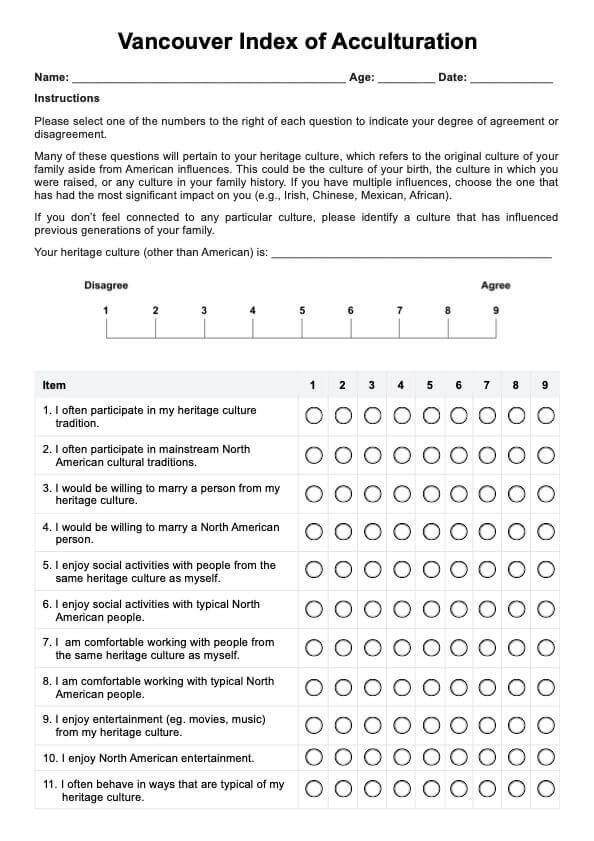










-template.jpg)






























































